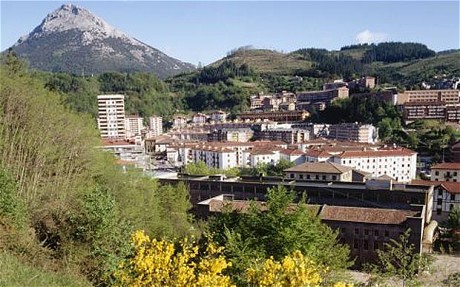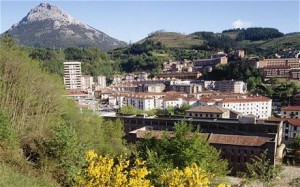Worker Cooperative Resilient During Industry Collapse

When the construction industry collapsed in Spain, the Mondragon cooperative division resisted, then dissolved, but preserved member’s jobs. Read how sustainable jobs are created by cooperatives…instead of factory shutdowns and abandonment by US corporate interests, here.
The Case of Mondragon
Mondragon is a cooperative that has 147 companies employing 80,000 workers. It was established by a Catholic priest, Jose Maria Arizmendiarrieta (JMA), in the Basque country in Spain. As did many priests in that country, JMA sided with the popular classes against the fascists, who—supported by Hitler and Mussolini—came to power in Spain, overthrowing an elected government in 1936. The leadership of the Spanish church hierarchy supported the fascist coup, and JMA was jailed because of his support for the republican democratic forces, as well as his opposition to the coup and to the dictatorship that it established. For many years JMA was ostracized from the church, although more recently he has been “discovered” by the Vatican and is even being considered for canonization, meaning that he could become a “saint.”
In 1956, JMA established the first cooperative, according to the principle that companies are best run when workers are their owners and participate in management decisions. Its success proves that JMA was right. Mondragon, based on this principle, has become one of the largest conglomerates of companies in the world. Of its employees, 46% work in the Basque country, 40% in other parts of Spain, and 17% in the rest of the world. The four major areas of involvement include industry (46%), commerce (40%), finance (3%), and services (1.3%). The system of governance is arranged so that the workers (members of the cooperative) own a share of their company, elect their managers (in each company and in the overall cooperative), and participate in all major decisions. The salary range limits the difference between executive positions and the lowest paid employees; the highest paid can never make 6.5 times more than the lowest paid. In other large companies, this differential is much, much greater, such that the best paid directors and top managers may make 200 times more (in some cases, 1,000 times more) than the average employee of the company. Mondragon companies are more efficient than these other companies.
Recently, one of Mondragon’s companies collapsed. Immediately, the conservative and neoliberal economists used that collapse as a means of discrediting the cooperativism movement. The company, Fagor Electrodomesticos, produced electrical material for use in home domestic tasks (e.g., washers). The collapse of the construction industry, a result of the explosion of the housing bubble, directly affected this company, as it sold its products primarily to the Spanish market.
The response of Mondragon, the overall parent company, to that crisis was quite different, however, compared to what other non-cooperative companies have done in similar situations. Mondragon lent 700 million euros to Fagor to help it recover. When recovery eventually looked impossible, only then did Mondragon stop lending money. But then, it relocated 600 of Fagor’s worker-owners to other companies belonging to Mondragon. Universal solidarity among worker-owners made the collapse of Fagor more bearable than it would have been otherwise.
There have been some problems, however, that need to be noted. One is that employees who are not owners have increased more rapidly than worker-owners, to a point that in some companies, the first are a much larger group than the second. In the supermarket chains owned by Mondragon, employing 38,420 workers, only a minority (12,260) are worker-owners, which establishes a difference in terms of whom to save in the case of collapse. In the collapse of Fagor, the transfer of employees favored those who were worker-owners, which is expected, but clearly creates a two-tier system that affects labor relations. Those who do not become owners either cannot afford to become owners or choose not to become an owner.
Actually, one of the successes of Mondragon was its ability to create a sense of identity among the workers within the company, encouraging an environment of solidarity and collegiality among them, a feeling that also extended (although to a much lesser degree) to non-worker-owners. The connection felt by the latter group has somewhat weakened, however, exposing a vulnerable point for the cooperative. Otherwise, from a business perspective, Mondragon is an excellent case of matching efficiency with solidarity and democracy.
Vincent Navarro is Professor of Public Policy at the Johns Hopkins University

Leave a Reply